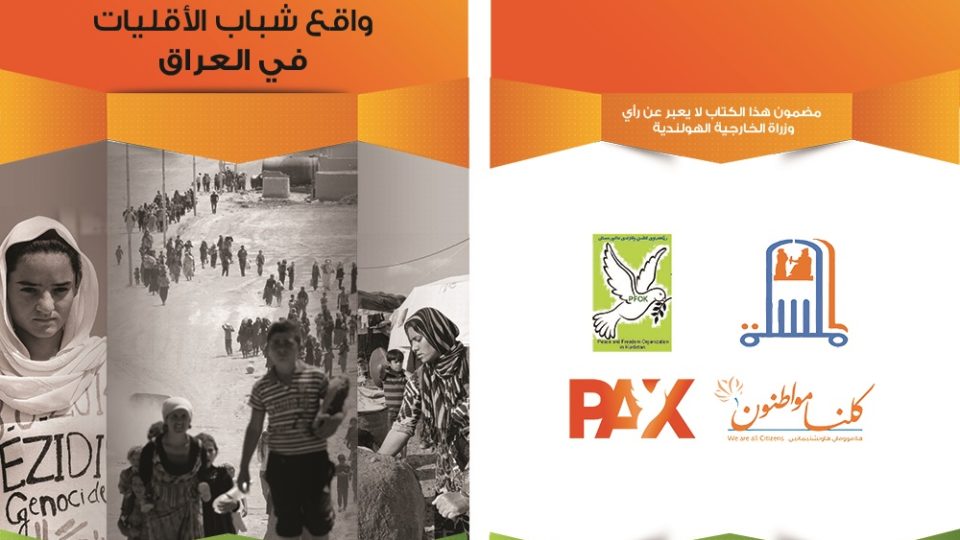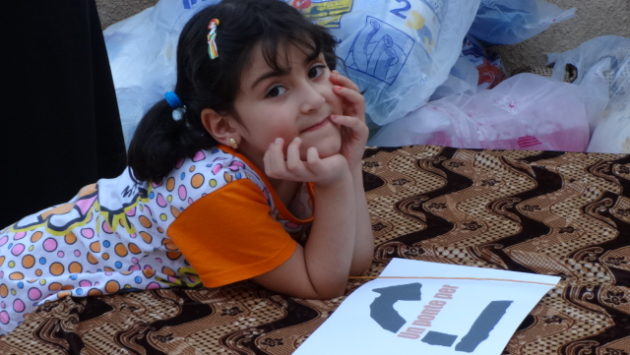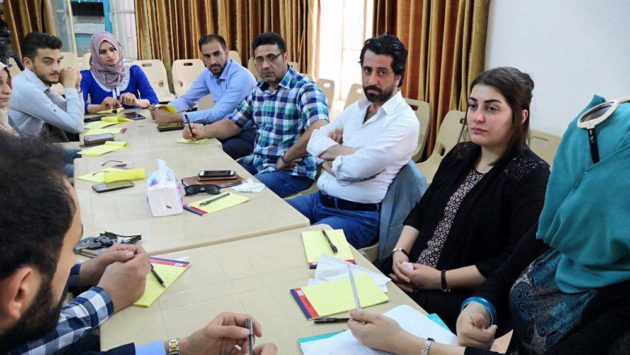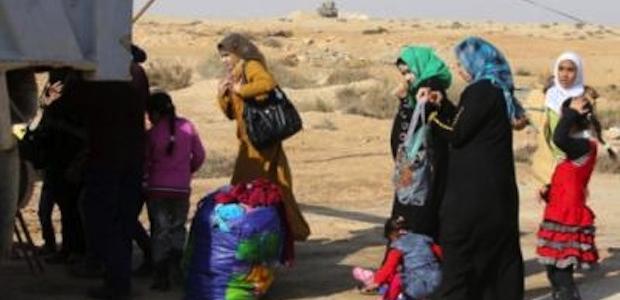Peace and Freedom Organization in Kurdistan Issues Reports and Recommendations Concerning Minority Youth
Erbil – Iraq / September 2015
New reports shed light on the lives of ethnic and religious minority youths in Iraq.
Minorities in Iraq, generally, and their young people, in particular, live under dangerous conditions. They face exclusion, discrimination, and unemployment.
After the fall of Mosul, minorities and above all minority youth faced killing, capture, kidnapping, rape, and even human trafficking, especially Yazidi girls. A huge number of them live in camps or in unfinished buildings in cities in Kurdistan and other Iraqi governorates. Hundreds of them chose risky means to flee their homeland, due to the lack of support and security. They become illegal migrants around the world.
The Peace and Freedom Organization, in partnership with Al-Mesalla Organization as part of a project supported by PAX called “We are all citizens” issued a press statement detailing the important findings of these reports. Several months ago, a group of activist, minority ethnic and religious youth – including Christians, Yazidi, Turkmen, Shabak, Sabean-Mandaean and Kakai – began working together to organize focus groups and to collect data about through interviews and a survey questionnaire. These minority groups from the Kurdistan region have been fighting for their rights for many years. A detailed report in Arabic of the data the youth collected and analyzed is available here.
The reports highlight problems that minority youth face, especially those who are living as displaced people. The reports also include suggestions and recommendations for actions that the Iraqi Parliament, government agencies, and organizations in Iraq and the Kurdistan region could take to improve conditions for minority youth. They address general problems and also make specific recommendations concerning the different minority groups. Some of the reports’ conclusions, especially those related to the minorities in the Nineveh plain, were presented at a conference that was held in Erbil on August 21st, 2015. 150 persons participated in the conference, including the president and members of the Council of Nineveh province, along with representatives of the political parties. The reports became part of the conferences’ official recommendations.
All of the recommendations will be given to both international and local organizations that are concerned with the challenges of youth in Iraq’s minority communities, in a vitally important effort to address and reduce the problems and difficulties that minority youth face.
List of Recommendations
- The characteristics and challenges of minority youth should be taken into consideration when the Iraqi government and the KRG make their strategic plans. These plans should be designed to help these youths to actively participate in their society and to make progress for themselves and their communities.
- Remove obstacles that hinder these youth from participating in politics and public affairs, especially reduce the age of nomination for the Iraqi parliament and the provincial councils to 20 years. Minority youth should also have an opportunity to join the police, military, and security forces.
- Remove obstacles that impede minority students from making progress through education. Minority students in the twelfth grade struggle with the Islamic topics that are included in the final exam, which consequently affects their overall grades.
- Most of the minorities live outside of cities, in territories that have been neglected in development projects. These territories should be taken into consideration and included in development plans so that minority youth have their respective centers and places for leisure, as well as increasing the green spaces in these territories.
- All members of society should join together in a united effort to achieve the release of the minority captives held by ISIS, especially the Yazidi girls. The local and international community should intensify their efforts to officially recognize ISIS crimes against Yazidis as genocide.
- Society should not be militarized; there must be a policy to keep all children under the age of 18 out of the military. Policies should be promoted that restrict guns in hands of official forces in Iraq and KRG.
- Awareness of tolerance, pluralism, and citizenship among youth should be maximized through building successful education programs by organizations and individuals who are concerned about youth.
- With help of youths themselves, the Iraqi government and KRG should build a strong program to encourage minority youth to stay in their homeland and reduce the massive migration that is currently taking place.
- There should be opportunity for minority youth to have jobs and to receive social services.
- Guarantee equal opportunity to all ethnic and religious groups to work in public media, especially to minority youth.
- Ensure that all ethnic and religious minorities enjoy freedom of expression and religion.
- Enact specific laws to prevent discrimination and to ensure that pluralism is guaranteed.
To review the report, Click Here





